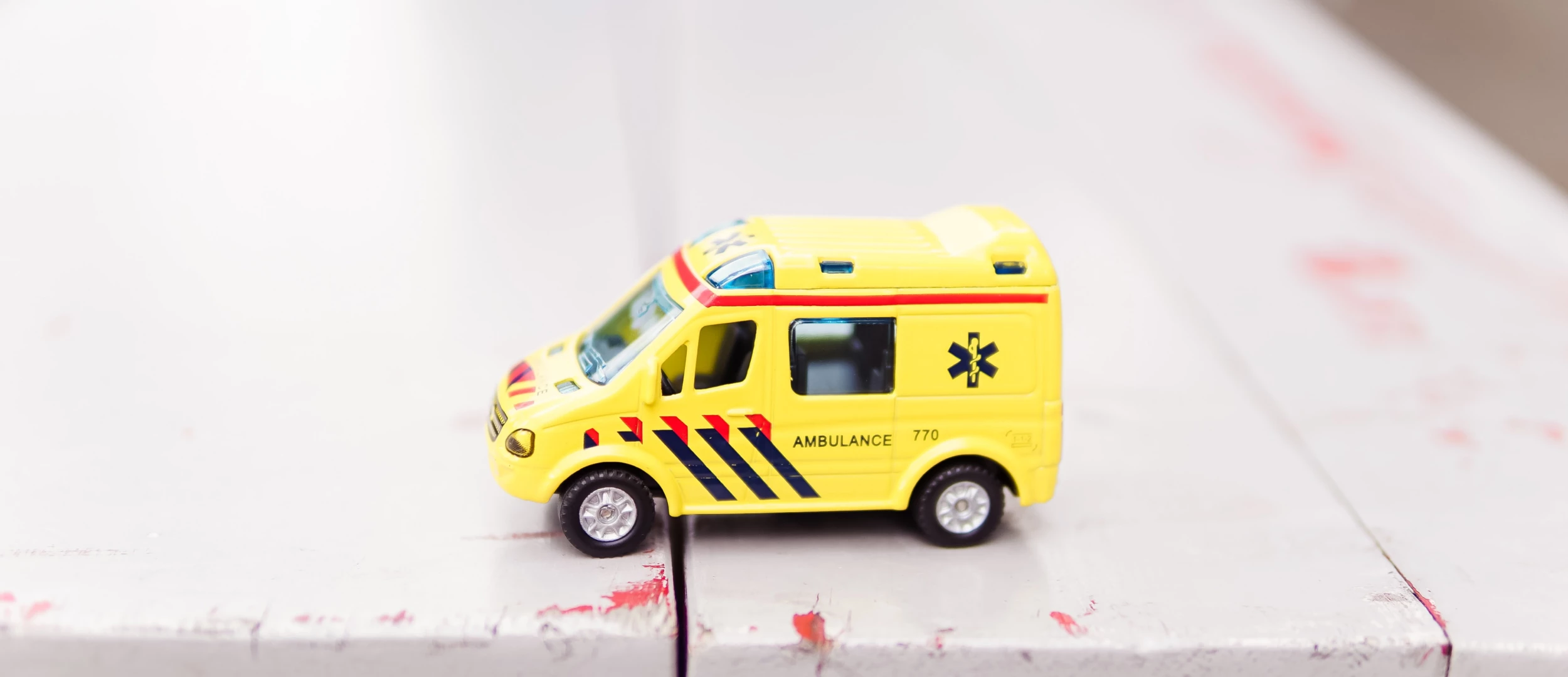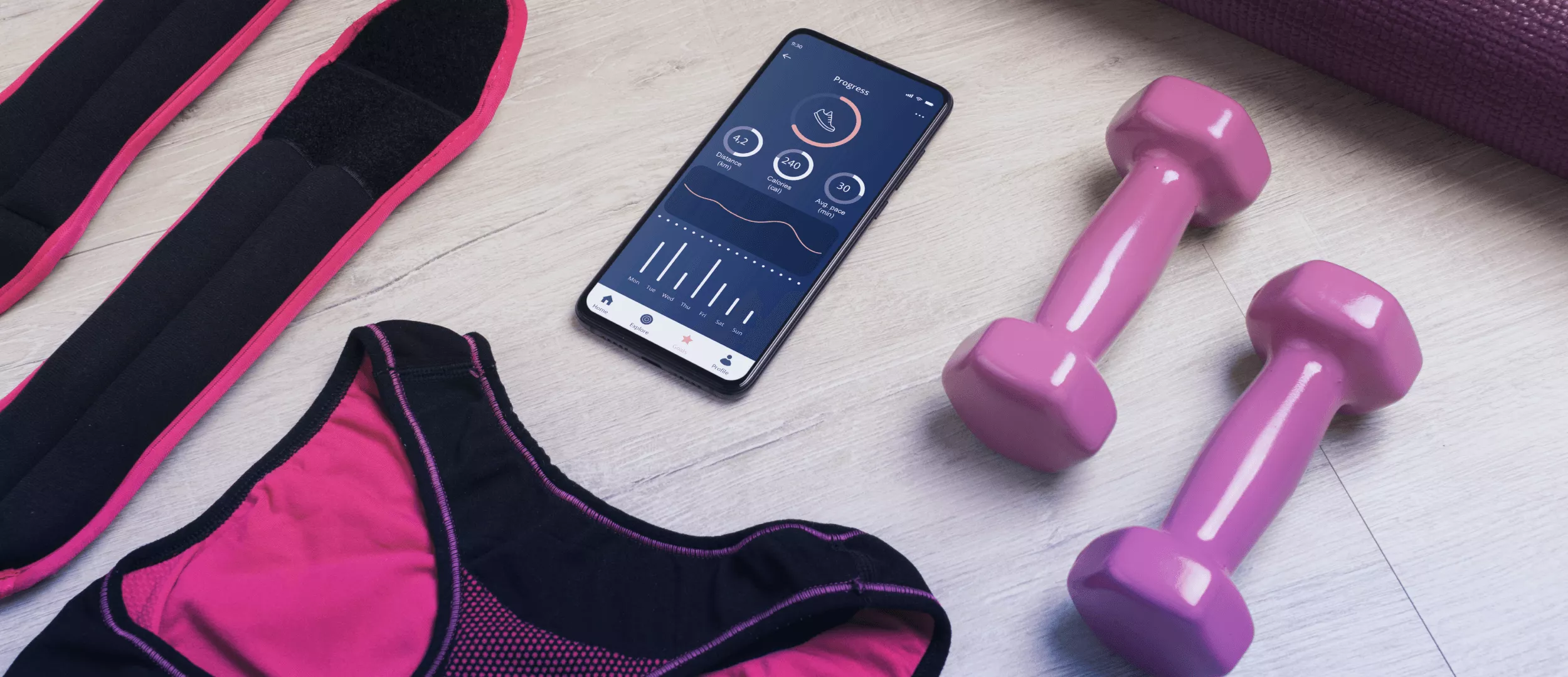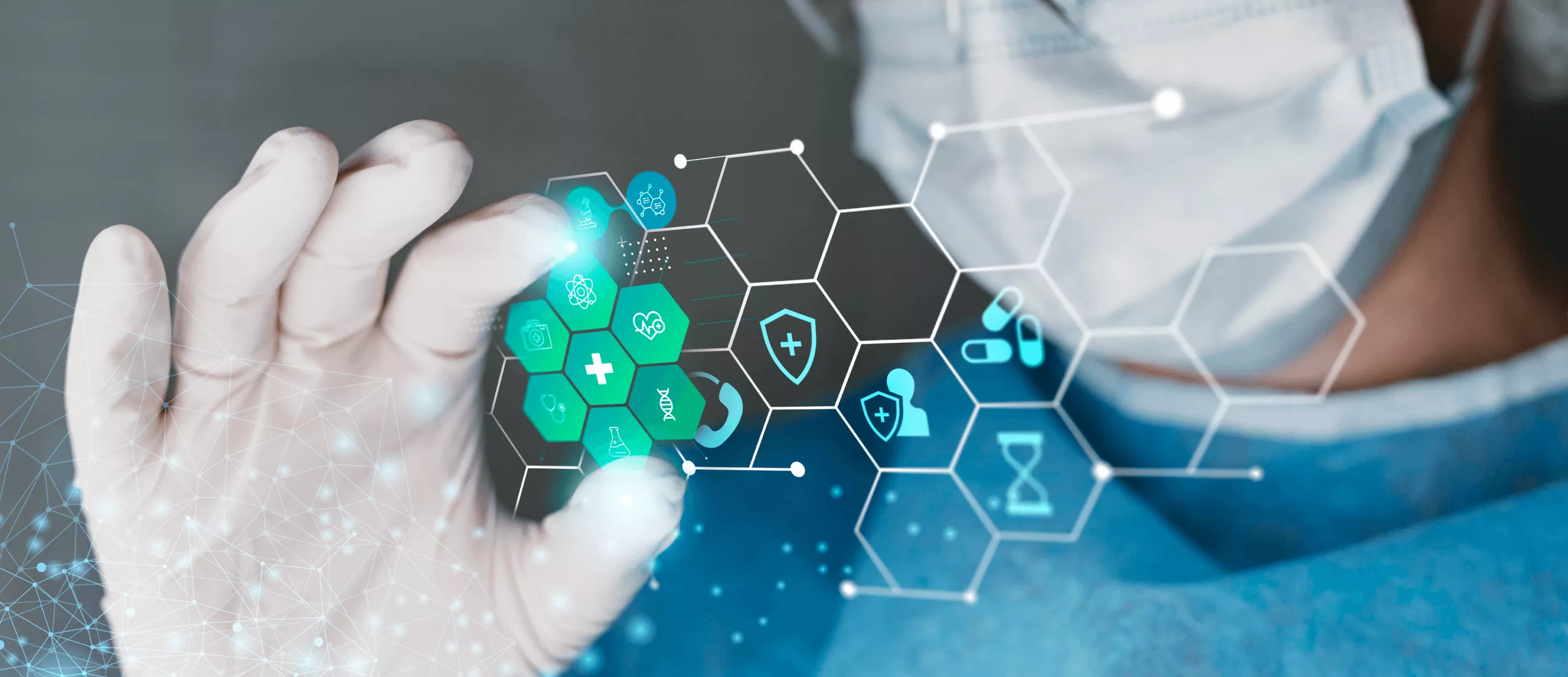
The Internet of Things emerged as groundbreaking technology about a decade ago. Yet, our continuous innovation in tech solutions and IoT devices in Healthcare utilization persists. Consequently, smart devices have now seamlessly integrated into our daily lives. It's likely you know someone who employs smartwatches or has witnessed e-scooters navigating the streets. The implementation of IoT has extended across industries, spanning from retail and logistics to manufacturing and oil production.
However, are you familiar with the concept of the Internet of Medical Things (IoMT)? Medicine is an ever-evolving field, consistently pushing boundaries. It's no surprise that companies harness the capabilities of IoT devices in Healthcare to offer doctors and patients more streamlined solutions.
The breadth of IoMT implementation within healthcare is remarkable. Experts anticipate a staggering surge in the global IoMT market, reaching over $181 billion in 2022 and projecting it to escalate to $950 billion by 2032.
Benefits of IoT in Healthcare
While the global healthcare landscape continually evolves, it still grapples with significant challenges that can yield profound consequences. These challenges of IoT in medicine encompass discovering remedies for emerging and longstanding diseases and addressing miscommunication, human errors in symptom identification and monitoring, adhering to routines, and exploring novel research avenues.
So, what precisely are the potential merits of incorporating IoT into healthcare, and how do IoT devices in Healthcare elevate the industry?
- Remote Healthcare: One of the most apparent perks of IoT in healthcare is the capacity for doctors to remotely oversee their patients' health status, enabling individuals to seek assistance anytime, from anywhere. This not only enhances convenience and emergency care but also fosters greater accessibility to medical aid.
- Disease Prevention: Prevention is often the best remedy. Here, IoT solutions in healthcare offer tracking and monitoring tools that empower patients to manage their health, modify habits, enhance lifestyles, and detect early indications of potential health concerns.
- Reduced Expenditure and More Effective Appointments: IoT devices in Healthcare and sensors empower patients to independently monitor their health conditions, reducing the need for frequent consultations. Concurrently, the extensive data amassed through applications of IoT in healthcare renders these visits more impactful, as doctors possess comprehensive insights at their fingertips.
- Accessible Medical Data: Previously, individuals had to visit labs, consult doctors, or own multiple devices for measuring metrics like blood pressure, heart rate, glucose, or blood oxygen levels. Remarkably, compact IoT healthcare devices now provide routine tracking while offering personalized statistics in health apps.
- Enhanced Diagnostics: The all-encompassing health tracking capabilities of IoT healthcare devices simplify the detection of anomalies and symptoms, aiding doctors in forming a comprehensive understanding of an individual's health status and expediting accurate diagnoses.
- Enhanced Healthcare Management: IoT applications in healthcare extend beyond individual needs to encompass institutional and systemic enhancement. For instance, specific types of medical IoT facilitate the assessment of equipment conditions and efficacy, along with the aggregation of global disease statistics.
- Optimized Drug Therapy: Effective medication therapy is pivotal to treatment success. IoT health monitoring systems are ingeniously designed to maximize the efficiency of drug treatments, ensuring optimal patient adherence and performance.
- Research Facilitation: Healthcare IoT devices serve as a valuable tool for research, amassing vast quantities of precise medical data. This enables scientists to focus on intricate tasks, instead of manual data collection, compilation, and analysis.
Delve into the realm of IoT applications within healthcare and explore the functionality of these advantages through real-world examples of the Internet of Medical Things (IoMT).
The Segments of The Internet of Medical Things
The healthcare industry is undergoing a significant transformation with the evolution of IoT technology, particularly through the Internet of Medical Things (IoMT). This revolutionary network of connected devices is revolutionizing patient health outcomes and enabling virtual connectivity between doctors and patients.
The IoMT, a key application of IoT in healthcare, encompasses a wide range of connected devices that gather real-time data. It positively impacts the industry by addressing medical challenges and holds immense potential in preventing and treating diseases. Wearable devices have been developed to facilitate easy patient monitoring without the need for frequent doctor visits.
The Internet of Medical Things is organized into distinct segments, each focusing on specific medical issues faced by the healthcare industry:
- On-body segment: This segment focuses on health wearables and medical-grade devices for individual consumers. Notable products in this category include Fitbit, Samsung Medical, and similar solutions.
- In-home segment: Designed for personal health tracking, this segment includes personal emergency response systems (PERS), telehealth virtual visits, and remote patient monitoring (RPM) solutions.
- Community segment: Comprising five components, this segment includes kiosks that dispense products and services, mobility services for patients' vehicles, emergency response intelligence, point-of-care devices resembling medical camps, and logistics systems for managing medical equipment and supplies.
- In-clinic segment: IoMT devices in this segment provide healthcare services within a clinic setting. They also encompass point-of-care devices to enhance patient care.
- In-hospital segment: This segment encompasses a variety of IoT healthcare solutions for managing different aspects within a hospital. These solutions include asset management monitors, personnel management systems, patient flow management tools, inventory management systems, and environment and energy monitoring devices.
Want a web app that does more?
Let's build a solution that's smart, sleek, and powerful.
Alina
Client Manager

When considering the applications of IoT in healthcare at a stakeholder level, it becomes evident that this technology is creating a profound industry-wide impact on patients, physicians, and hospitals alike. The IoMT revolutionizes the way healthcare is delivered, fostering better outcomes and enhancing the overall patient experience while facilitating efficient healthcare management for physicians and hospitals.
For Patients
Fitness bands, glucometers, and heart rate cuffs, provide individuals with personalized metrics and constant tracking capabilities. These wearable devices can have a significant impact on patients living alone as they can send alerts to their family members, ensuring their safety and well-being.
For Physicians
Medical IoT wearables and home monitoring devices embedded with IoT technology enable physicians to track patients' health more effectively. The data collected from these IoT healthcare devices assist doctors in identifying the most suitable treatment and monitoring approaches for their patients. This convergence of the Internet of Things and healthcare leads to improved outcomes and better results.
For Hospitals
Hospitals utilize IoT technology by incorporating sensors to track the real-time location of medical equipment such as defibrillators, wheelchairs, oxygen pumps, nebulizers, and other monitoring devices. This technology also facilitates the analysis of medical staff deployment across multiple locations. Furthermore, IoT medical devices aid in asset management, including environmental monitoring and pharmacy inventory control, such as regulating refrigerator temperature and humidity.
Medical IoT addresses several pain points within the healthcare ecosystem through its involvement of multiple stakeholders, including:
- Inefficient patient care
- Medical process errors
- Supply chain management
- Medical research
- Rural healthcare management
By tackling these IoT challenges in healthcare, medical IoT brings about significant improvements in healthcare delivery and management.
Transforming Healthcare Through IoT
The rapid advancement of IoT technology in the healthcare industry presents a plethora of opportunities. The substantial volume of data generated by interconnected devices holds immense potential for revolutionizing healthcare.
The IoT architecture follows a four-step process, where each stage is interconnected, allowing data to flow from one stage to the next, ultimately delivering value. This integrated process yields insights and creates dynamic business prospects.
- The 1 step provides for deploying an array of connected equipment that includes cameras and detectors, and data that is essential is collected by these devices.
- Step 2 involves aggregating data received from various sources by converting it into a digital format suitable for further processing.
- Step 3: Once the data is digitized and aggregated, it undergoes pre-processing and standardization and is transferred to the data center or the Cloud.
- Step 4: The final stage involves managing and analyzing the data at the required level. Advanced analytics applied to this data generate actionable business insights that facilitate effective decision-making.
IoT technology is reshaping the healthcare landscape by enhancing patient care, improving treatment outcomes, and reducing costs for patients. Simultaneously, it enables healthcare providers to streamline processes, improve workflows, enhance performance, and elevate the overall patient experience.
By harnessing the power of IoT, healthcare is undergoing a fundamental transformation, empowering both patients and providers with innovative solutions that drive better healthcare outcomes.
Top IoT Applications in Healthcare
Healthcare and technology have converged in unprecedented ways, giving rise to remarkable advancements in the Internet of Things (IoT) that are revolutionizing patient care and medical processes. This intersection of innovation has paved the way for a new wave of Internet of Things healthcare applications that redefine the field.
Let's explore some of the most impactful applications in the realm of IoT in healthcare:
Internet of Bodies (IoB)
IoB leverages the human body as a rich source of medical and fitness data. Through a network of IoB devices, biometric, physiological, and behavioral data are collected, transmitted via IoT systems, analyzed through backend infrastructure, and delivered to users, often through mobile apps. This encompasses wearable smart fitness devices, biometric authentication, implants, prosthetics, artificial organs, pill dispensers, and various other wearable, implantable, and ingestible technologies. IoB enables continuous health monitoring, precise diagnoses, and support for chronic conditions.
IoMT Wearable Devices
Smartwatches and IoT-powered bands are among the most popular IoT healthcare applications. Beyond fitness and medical uses, they also integrate with other devices, providing functions like timekeeping, weather updates, and message notifications. They offer features such as step tracking, heart rate monitoring, and sleep analysis. Leading tech brands like Apple, Samsung, Huawei, and others offer a range of IoMT devices.
Hearables
Advanced hearing aids enriched with IoT technologies empower those with hearing impairments. These devices connect to smartphones via Bluetooth, enabling personalized sound adjustments for real-world environments. The Whisper Hearing System exemplifies this innovation, using IoT and AI to optimize sound experiences through continuous analysis and learning.
Smart Pills
The convergence of science fiction and medical technology has led to ingestible sensors packaged within pill-sized capsules. These sensors provide highly accurate diagnostics, and researchers have developed capsules equipped with sensors and artificial bacteria to diagnose gastrointestinal issues, reducing the need for traditional methods like endoscopy.
Glucose Monitoring
IoT solutions are enhancing glucose monitoring for diabetes patients. Abbott's FreeStyle Libre range offers non-invasive sensors that monitor glucose levels around the clock and notify users via mobile apps of deviations, aiding in timely intervention.
Hygiene Monitoring
The COVID-19 pandemic underscored the importance of hand hygiene. IoMT badges from companies like Biovigil ensure compliance with hand hygiene protocols in medical settings, contributing to safer patient care.
Moodables
IoMT devices like smart patches from FeelZing influence mental health directly, helping users enhance mood and cognitive abilities through neurostimulation, improving focus and peace of mind.
Smart Hospitals
IoT in healthcare empowers hospitals, fostering efficient collaboration between medical professionals and technical staff, enhancing patient service, and extending the lifespan of medical equipment.
Predictive Maintenance
IoT's predictive maintenance methods ensure seamless equipment function, reduced health risks for patients, and cost-effective repair and become one of the top IoT applications in Healthcare. The Virtos Automatic immunoassay analyzer employs automated IoT monitoring to alert operators of potential malfunctions.
Connected Equipment
Many IoT applications in Healthcare involve smart connected medical equipment, enabling easy access to device characteristics and interaction through mobile apps. Defibrillators, nebulizers, and other monitoring equipment benefit from IoMT integration.
Asset, Staff, and Patient Management
Complex medical institutions require innovative solutions for tracking devices, equipment, and patients. Arrowfinch's IoT tracking system uses sensors, tags, badges, and connected medtech devices to ensure efficient coordination.
Smart Labs
IoMT enters lab settings, automating repetitive tasks and enhancing efficiency. Swittons offers solutions that manage equipment status, trigger maintenance calls, and send emergency alerts.
Chronic Disease Management
IoMT devices assist chronic patients in monitoring their health, medications, and symptoms accurately, fostering consistent care and early intervention. Solutions like Quio's IoT health monitoring system contribute to adjusted treatment plans.
Robotic Surgery
Robotic tools powered by IoT technology excel in surgical precision and speed. These tools perform complex procedures with reduced invasiveness and risks, transforming fields like general, cardiac, spinal, gastrointestinal, and urologic surgery.
Rehabilitation
IoMT devices accelerate recovery during the rehabilitation phase. DyCare's ReHub system, utilizing AI and IoT health monitoring, connects doctors with patients to tailor recovery strategies based on data collected by smart sensors.
The IoT applications in healthcare are vast and transformative, ushering in an era of personalized patient care, efficient medical operations, and groundbreaking technological innovations that promise to reshape the landscape of healthcare delivery and management.
Challenges in IoT Implementation in Healthcare
- Data Security and Privacy: A prominent challenge of implementing the Internet of Things in healthcare is the issue of data security and privacy. IoMT devices gather and transmit real-time data, but many lack adequate data protocols and security measures. The ambiguity surrounding data ownership regulation further complicates matters. This vulnerability exposes patient and doctor data, making it susceptible to cyberattacks. Hackers could compromise Personal Health Information (PHI) for fraudulent activities, such as creating fake IDs to buy medical supplies or filing insurance claims.
- Integration of Multiple Devices and Protocols: The integration of diverse devices poses obstacles due to the lack of consensus among manufacturers regarding communication protocols and standards. The variation in these protocols complicates data aggregation, hindering the smooth flow of information between connected devices. This lack of uniformity slows processes and limits the scalability of IoT in healthcare.
- Data Overload and Accuracy: Despite the challenges in data aggregation, IoMT devices generate copious amounts of data. While this data is invaluable for gaining insights, the overwhelming volume makes it challenging for doctors to extract meaningful information. The sheer quantity of data, coupled with varying protocols, hampers accurate interpretation, affecting the quality of decision-making and potentially compromising patient safety.
- Cost Considerations: Although IoT holds promise, its implementation in healthcare has not yet translated into more affordable services for the general population. Rising healthcare costs are a concern, especially in developed countries. While IoT in healthcare is a compelling concept, it has not effectively addressed cost issues. The healthcare cost burden has led to the emergence of "Medical Tourism," where patients seek treatment in developing nations due to lower costs. To realize the full potential of IoT in healthcare, stakeholders must work towards making it cost-effective, ensuring accessibility beyond high-income individuals.
In summary, while IoT offers transformative potential in healthcare, challenges related to data security, integration, data overload, accuracy, and cost considerations must be effectively addressed to fully harness its benefits of using iot in healthcare and make innovation accessible to all segments of society.
What is the Future of IoT in Healthcare??
The impact of IoT in healthcare has been tremendous, and its potential for further transformation is vast. The integration of IoT has brought about advancements such as depression and mood monitoring, smart insulin delivery, remote analysis of heart rate and breathing, connected inhalers, and numerous other IoT applications in Healthcare that have revolutionized the delivery of medical services.
Ongoing trends have inspired healthcare institutions to incorporate IoT applications in Healthcare into their business models, with approximately 60% of businesses in the industry already adopting IoT-based solutions. This indicates that companies and healthcare providers are actively seeking better solutions to address the challenges they faced with manual record processing and management systems.
According to reports, around 80% of clinics prefer Electronic Health Records over traditional manual documents. These advanced systems help hospitals to store, manage, and analyze patient data more efficiently, leading to a gradual shift away from manual record-keeping practices.
Our Experience
Revolutionizing Street Siren Control
Amidst the ongoing conflict, Stfalcon has remained steadfast in its commitment to aiding and safeguarding lives in Ukraine. Guided by this noble purpose, our focus has shifted towards crafting software solutions that not only enhance lives but also play a pivotal role in preserving them.
Amid the tumult of war, the Khmelnytskyi Regional Military Administration approached Stfalcon with a critical mission: to automate the activation and deactivation of street warning sirens, effectively disseminating threat information to the populace.
After a meticulous evaluation of existing technological options, Stfalcon opted for the GSM alarm controller developed by Ukrainian company OKO as the foundational framework for a device that adeptly fulfilled the prescribed task.
A Smart Lock App
Entrusted with the development of software to seamlessly interface with a smart lock, our team embarked on a journey to create an intuitive application. Our goal was to empower users with the convenience of remotely controlling their home locks through simple commands dispatched from their smartphones.
The software also boasts sophisticated capabilities including generating virtual access codes, enabling access revocation, and employing owner recognition for automated door unlocking.
Conclusion
The showcased healthcare IoT applications provide just a glimpse into the expansive world of the Internet of Medical Things. This industry spans numerous facets of the global healthcare landscape, showcasing its immense potential. For businesses and developers, this realm offers boundless opportunities to channel creativity and harness technological progress to enhance a critical aspect of human life.
Should you find yourself driven to craft your own IoMT device, rest assured that Stfalcon stands ready as your trusted IoT development partner. Embark on your journey by contacting our team for an insightful free consultation.

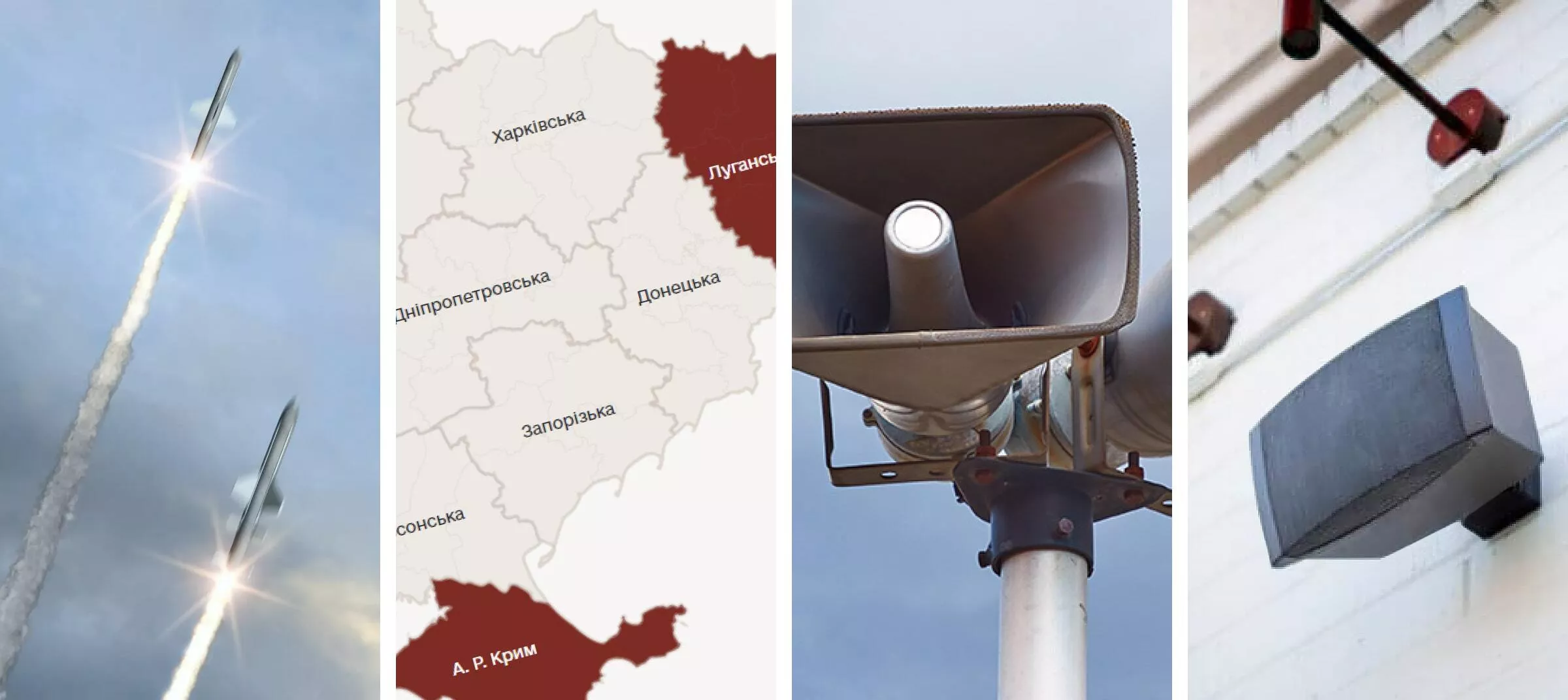 Read the full case study
Read the full case study
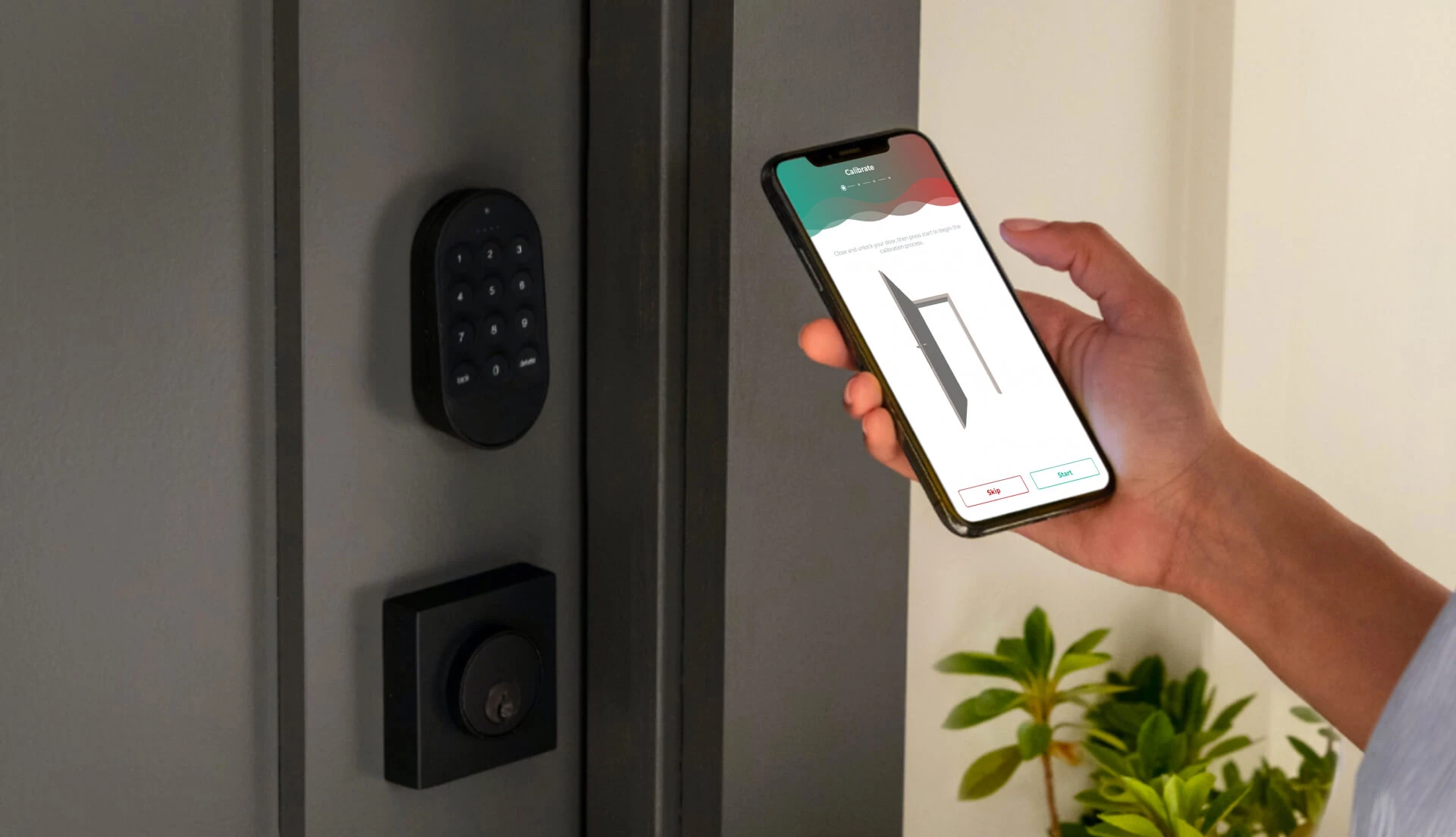 Read the full case study
Read the full case study
